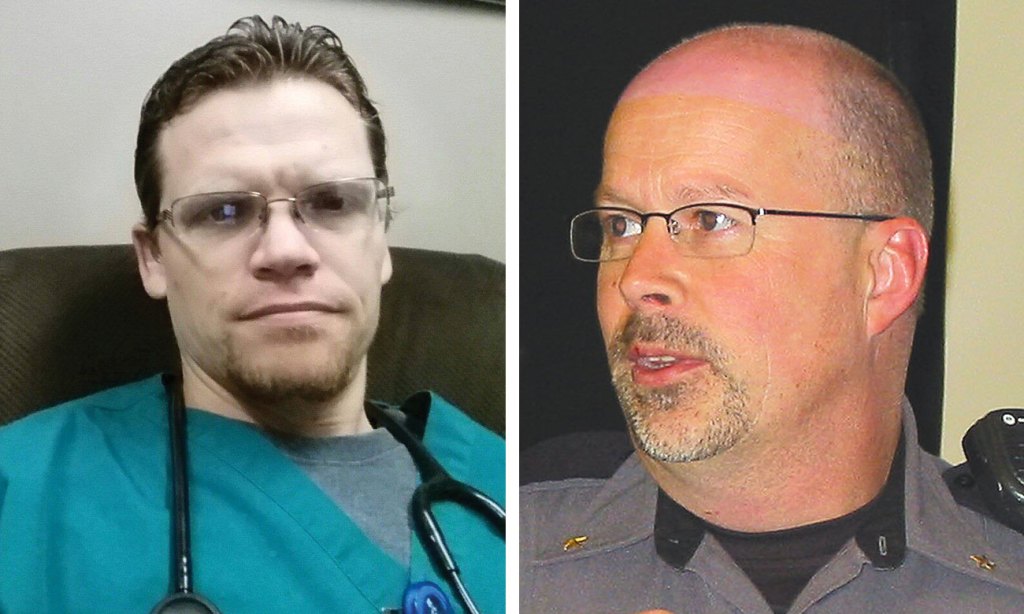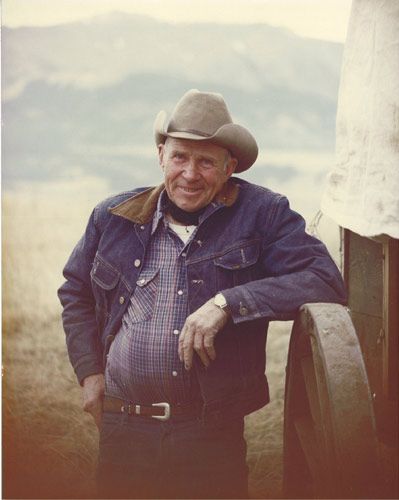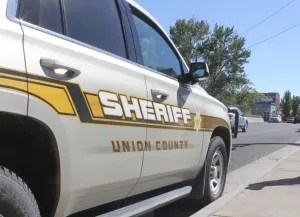In focus: man records police to defend 1st Amendment
Published 12:09 pm Friday, December 1, 2017

- In focus: man records police to defend 1st Amendment
A Baker City man called local law enforcement officers “tyrants” after he went on a campaign to defend the First Amendment by making videos of on-duty officers.
James Cook, 37, went to the Law Enforcement Services building, which houses the Union County Sheriff’s Office, the La Grande Police Department, dispatch center and the county jail, on Nov. 17 and did what he called a “First Amendment audit.” Cook took video of the building’s security cameras and of employees to see how government officials react to being recorded by a citizen. Area law enforcement have since had conflicting responses to Cook’s intent.
An ongoing effort
Cook is part of a group on YouTube who “try to normalize” the recording of government officials. He’s been posting YouTube videos for about a month, according to his account.
Cook originally got involved with this group when he was doing research and came across an article about Baker City Police allegedly “targeting a person.”
That person is Brian Addison, a Baker City journalist who filed a lawsuit against Baker City and its police chief, Wyn Lohner.
Addison filed a still-pending lawsuit in 2008, after he wrote an editorial critical of police for the Record-Courier. Addison contends in the lawsuit he was frequently followed by Baker City officers in retaliation for the editorial.
Addison also claims in his lawsuit that Baker City Police tried to influence his employers to fire him.
“They went after him through his employer,” Cook told The Observer. “They followed him around. I saw how they were treating reporters.”
That’s when Cook decided to get involved.
“I live here in Baker. I wanted to start in the place where I live to make the biggest impact in the community,” he told The Observer. “I want to make sure the Constitution is being upheld. (Police officers) swore an oath to the Constitution. I saw that I was making a lot of change in Baker. If I go and film now (in Baker City), I don’t get a response.”
Which is the goal, Cook said. He knows officers will ask him why he is making videos, but he asserts that he has a constitutional right to do so.
As an Eastern Oregon University graduate, Cook has ties to Union County as well. He decided to perform an “audit” in La Grande.
Recording Union County officers
In a three-part video series focusing on Union County officers, Cook began at the police station and took video footage of the police station’s security cameras and officers for 45 minutes, he said.
According to the website for Portland law firm Romano Law, it is legal in Oregon to video record anyone on public property, “if they do not have a reasonable expectation of personal privacy.” Public spaces do not guarantee a reasonable expectation of privacy.
In the first part of the video, at approximately 9 p.m. on Nov. 17, Cook walks around the police station campus. The first interaction is at the very beginning of the video with a La Grande police officer. The officer questions why Cook is recording the station.
“It seems odd,” the officer says to Cook.
Cook responds that he “pays a lot in taxes and if I want to video record the police station, then I have a right to do so.”
As the video progresses, Cook makes comments about police vehicles that pass by him as he records. A Union County Sheriff’s Office deputy stops his vehicle in the road to talk to Cook.
The deputy asks Cook where he’s from.
“I usually don’t answer questions like that,” Cook says in the video. “I try to keep my personal stuff personal.”
Cook refuses to provide officers with his name.
He does tell all of the officers that he’s video recording them before the interaction begins.
In the video, La Grande Police Sgt. Jason Hays meets Cook outside near the jail entrance after the deputy drives away.
The two talk briefly, and Hays goes back inside.
“I had been watching him on the cameras for 45 minutes (before going outside),” Hays told The Observer on Tuesday. “I thought he was trying to provoke us. I think he was immediately confrontational with us.”
Hays said Cook was making it very obvious he was video recording the security cameras at the station and was looking straight at the cameras. Cook was also recording citizens in their cars as they drove by.
The situation escalates
“I went out to see if I recognized him,” Hays said of his first interaction. That’s when the officer noticed Cook had a handgun in a holster on his left hip.
Hays said it was at this point when La Grande Police Chief Brian Harvey was called to get involved in the situation.
The second video began moments after the first ended with Cook in a residential neighborhood on Fourth Street in La Grande. He tells his YouTube audience that he’s being followed by police.
Cook yells toward a UCSO vehicle, asking why they’re stalking him.
“You guys are obviously stalking me to find out what I drive, right?” Cook says.
UCSO Deputy Justin Hernandez is in the vehicle.
“We’re not stalking you,” responds Hernandez. “It’s about community safety.”
The deputy points out Cook’s gun.
“Guns are legal,” Cook argues. “You have a gun, should I follow you around? You don’t have any more rights than I do.”
Cook told officers they were infringing on his First and Second Amendment rights.
“I would never harm anyone,” Cook says to Hernandez as Hays walks up to Cook at the scene.
Hays said when he got to the scene, he could hear Cook “yelling.”
“He said we were harassing him,” Hays said Tuesday. “He was the only one being confrontational.”
In the video, Hays tries to explain to Cook why police would be concerned that a man with a gun was video recording the police station security cameras.
Hays points out in this day and age, it’s not unreasonable to be alarmed when someone with a gun is walking around the police station and recording video.
“There was no reasoning with him,” Hays said Tuesday.
Cook replies he was exercising his constitutional rights, which were given to him by God and not the government. The videographer does not concede that his methods appear confrontational, neither in the videos nor in an interview with The Observer.
Hays continues to try to explain why it would be reasonable for police to be concerned about the situation.
“You’re nine times more likely to be killed by a cop than a terrorist,” Cook replies. “That’s why I carry a gun to protect myself.”
At that point, more officers show up to the scene, including Chief Harvey.
Cook tells Harvey to stop shining a flashlight in his face. Harvey continues anyway.
“You’re being trespassed from all the city property and county property around the police department facility,” Harvey tells Cook. “If you step on that property, you are going to be arrested for criminal trespass, do you understand that?”
Any laws broken?
Cook responds to the threat of being trespassed by asking what laws he broke.
“If you step back on that property you will be arrested for trespassing,” Harvey says.
Although the street they were on is used by the public, it is technically county property. Harvey could trespass Cook from that property, though he said he’s never had to trespass someone from the police station in his more than eight years as chief.
Harvey told The Observer that the reason for the trespassing charge stemmed from Cook’s continued tampering with the building’s surveillance equipment.
Cook turns around toward the police vehicles and yells that they are infringing on his First Amendment rights.
“I don’t care what you have to say. You guys are pathetic,” Cook says, walking away from the scene.
After the incident, Cook told The Observer he thought the conversation with the officers and deputies was going OK until the chief arrived.
“I was totally frightened,” Cook said. “(The chief) really escalated the situation. He put the flashlight in my face, shining it into my camera so I couldn’t film.”
According to Oregon State law, preventing a citizen from recording is censorship. The law states that individuals can obtain whole conversations by means of any device if the officer is performing official duties, the recording is made openly and in plain view of the participants in the conversation, and the individual is recording in a place they lawfully have a right to be.
A cautious response …
Harvey told The Observer his actions were motivated by his concerns about safety.
“(Cook) was real confrontational. In today’s environment we’re concerned. We have the jail and dispatch here. Why is he messing with the security system?” Harvey asked. “From a security standpoint, we don’t need him to mess with our security system.”
During any flashes from Cook’s camera, the law enforcement security cameras were unable to capture images. Otherwise, there has been no reports that the cameras were damaged in any way, nor did any of the non-flash recordings interfere with the security camera’s footage.
The police chief said during his initial conversation with Cook he had no way of knowing who he was or what his motivations were.
It was possible, Harvey added, that Cook was intending to help someone escape the jail or to attack employees inside.
According to Harvey, there were two separate incidents where La Grande officers had been threatened around the time of Cook’s incident. Law enforcement didn’t know whether Cook was friend or foe.
“He was trying to provoke a response,” Harvey said. “If he’s carrying a handgun, it’s his right. But to be at a jail facility with a gun is concerning.”
… To a cautious approach
Cook told The Observer he had also been wearing a bulletproof vest during the episode.
“In a previous video, I had (a citizen) come out and threaten me, and the (Baker City) Police Department didn’t do anything,” Cook said. “I decided I was going to protect myself and carry a pistol. It’s very dangerous what I’m doing. (The Union County law enforcement) was very aggressive toward me. I wear a bulletproof vest, then maybe I (will) live.”
Cook said that in his view, La Grande and Union County law enforcement did “terribly” during his Nov. 17 audit.
“I thought I was going to get shot,” Cook said. “That’s why I asked them if they had a body camera. There would’ve been no way to prove that I wasn’t doing something — that they couldn’t say they didn’t have a reason to shoot me. If they had body cameras I would’ve stayed to talk about it. It wasn’t worth getting shot.”
Since Cook has posted the videos to YouTube, Harvey said, he has talked with Cook over the phone.
“I don’t mind having a conversation with a reasonable person,” Harvey said, but that’s not what he was presented with the night Cook was recording the video.
“We’re huge on the Constitution,” Harvey said. “I have no opposition (to the First or Second amendments). It was his methodology that I had a problem with.”
Harvey added that officers had no way to know whether Cook had mental issues, which could have made him dangerous.
What’s come of it
“This was an unnecessary drain on resources,” Harvey said about the entire incident. “Because of the relationship we have with the community, if there was a problem, the local community would let it be known.”
Cook said his phone conversation with Harvey was a “good starting point” and that he suggested that Cook’s time would be better spent observing other government enterprises.
“My statement back (to Harvey) was, ‘No disrespect, but your reaction is why I do what I do,’” Cook said.
Similarly, Cook said Baker City Chief Wyn Lohner had a mixed reaction when Cook performed his first “audit” in Baker City. However, the pair have a good working relationship now, Lohner said.
“Our first interaction was more than a year ago,” Lohner said about Cook’s audit. “He was out near the prison. Our initial response was obviously of concern. He was out at night, near the prison. Since then, he’s filmed a number of officers and community members.”
The chief said he offered Cook the officers’ point of view.
“I do believe his intent is to see the public officials and others respond professionally at all times and to stay unbiased in their conversations with citizens,” Lohner said. “I think that is truly his intent. I do feel, at the end of the day, because of what he’s done with the police videos, we’ll be better.”
Harvey said he has no problem with sitting down and speaking to anyone, but he said this group of “YouTube activists provoke the police and private citizens.”
This was the first time Harvey has dealt with a situation like this.
“We’ve had constitutionalists before, but this is an activist,” Harvey said.





